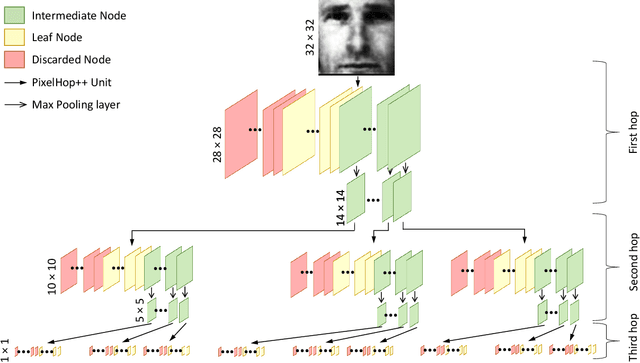FaceHop: A Light-Weight Low-Resolution Face Gender Classification Method
Paper and Code
Jul 21, 2020



A light-weight low-resolution face gender classification method, called FaceHop, is proposed in this research. We have witnessed a rapid progress in face gender classification accuracy due to the adoption of deep learning (DL) technology. Yet, DL-based systems are not suitable for resource-constrained environments with limited networking and computing. FaceHop offers an interpretable non-parametric machine learning solution. It has desired characteristics such as a small model size, a small training data amount, low training complexity, and low resolution input images. FaceHop is developed with the successive subspace learning (SSL) principle and built upon the foundation of PixelHop++. The effectiveness of the FaceHop method is demonstrated by experiments. For gray-scale face images of resolution $32 \times 32$ in the LFW and the CMU Multi-PIE datasets, FaceHop achieves correct gender classification rates of 94.63\% and 95.12\% with model sizes of 16.9K and 17.6K parameters, respectively. It outperforms LeNet-5 in classification accuracy while LeNet-5 has a model size of 75.8K parameters.
 Add to Chrome
Add to Chrome Add to Firefox
Add to Firefox Add to Edge
Add to Edge